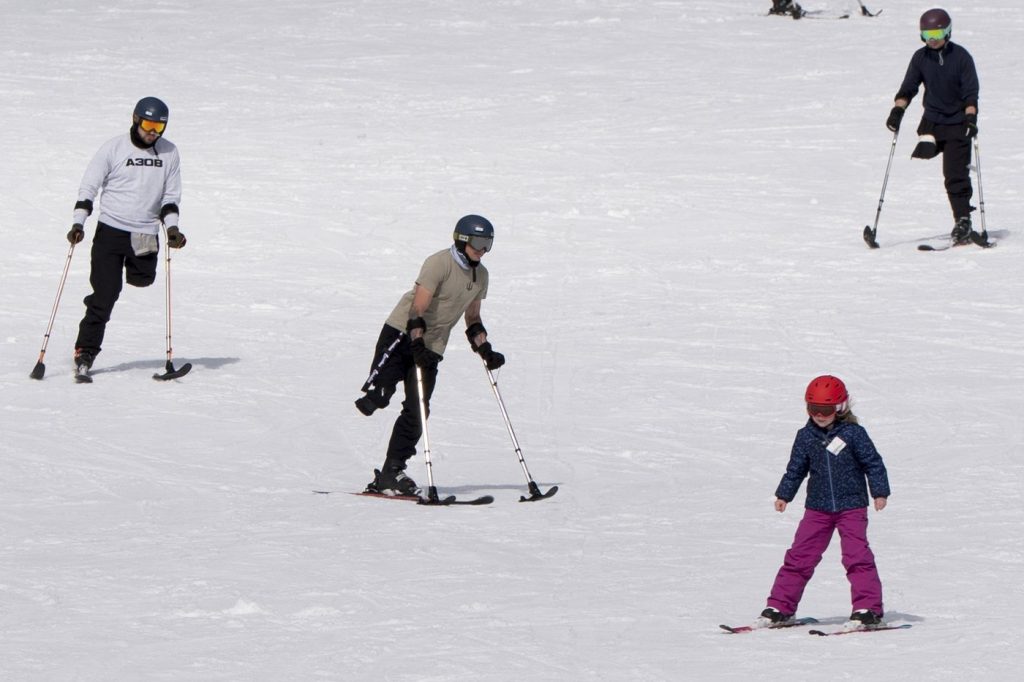**HOODOO SKI AREA, Ore.** — Oleksandr Shvachka, a 38-year-old Ukrainian war veteran, experienced a significant milestone in his recovery journey after losing his left leg to Russian tank fire near Kyiv. This month, he was among five veterans from Ukraine who traveled over 5,000 miles to Oregon for adaptive ski lessons offered by Oregon Adaptive Sports, an organization dedicated to making sports accessible for individuals with disabilities. The program aimed to support veterans both physically and mentally by introducing them to skiing.
During a sunny day at Hoodoo Ski Area in central Oregon, Shvachka engaged with instructors before skiing down a slope using two hand-held “outriggers,” which resemble forearm crutches equipped with skis. Reflecting on the experience, he described skiing as an “amazing emotion,” expressing joy and a sense of fulfillment. Shvachka was gravely injured while serving in the village of Makariv in March 2022, soon after Russia's invasion of Ukraine began.
Corvallis, Oregon, has maintained a sister city relationship with Uzhhorod in western Ukraine for over 30 years. This connection facilitated the hosting of the veterans and two Ukrainian ski instructors by the local sister city association. The program, spanning four days of lessons over two weeks, not only focuses on rehabilitating veterans but also aims to pass on skills to Ukrainian instructors to help train others, particularly those affected by the conflict and homelessness.
Carol Paulson, an association co-founder, emphasized the initiative's positive impact, stating that it reminds veterans of their potential to engage fully in life, paving the way for both independence and well-being. Paulson has previously taught adaptive skiing to Vietnam War veterans and noted that the tranquility of skiing sets it apart from other sports, creating a serene environment in which participants can thrive.
Shvachka highlighted the importance of adaptive sports for both physical healing and mental motivation, underscoring the camaraderie among fellow veterans. In addition to the ski lessons, he has achieved significant accomplishments in the past year, including running a 10K race organized by the U.S. Marine Corps and participating in the Arnold Classic Europe, where veterans competed using innovative strength demonstrations like pulling semitrucks.
Pat Addabbo, executive director of Oregon Adaptive Sports, commented on the transformative impact of sports, noting how diverse individuals from around the world come together in Oregon to learn life-changing skills. The group plans to return to Ukraine with outriggers to begin teaching a three-track skiing method to others who have lost limbs due to the conflict.
Kristian Minai, one of the Ukrainian ski instructors and a coach for Ukraine’s national deaf ski team, expressed optimism for the future of veteran rehabilitation programs in Ukraine, looking forward to seeing participants succeed at levels such as the Paralympic Games. His vision highlights the potential for these veterans not only to regain a sense of independence but also to inspire a new generation of adaptive athletes.
This initiative showcases the resilience and determination of Ukrainian veterans as they work towards healing and reintegration into active life, supported by international partnerships and adaptive sports programs.










